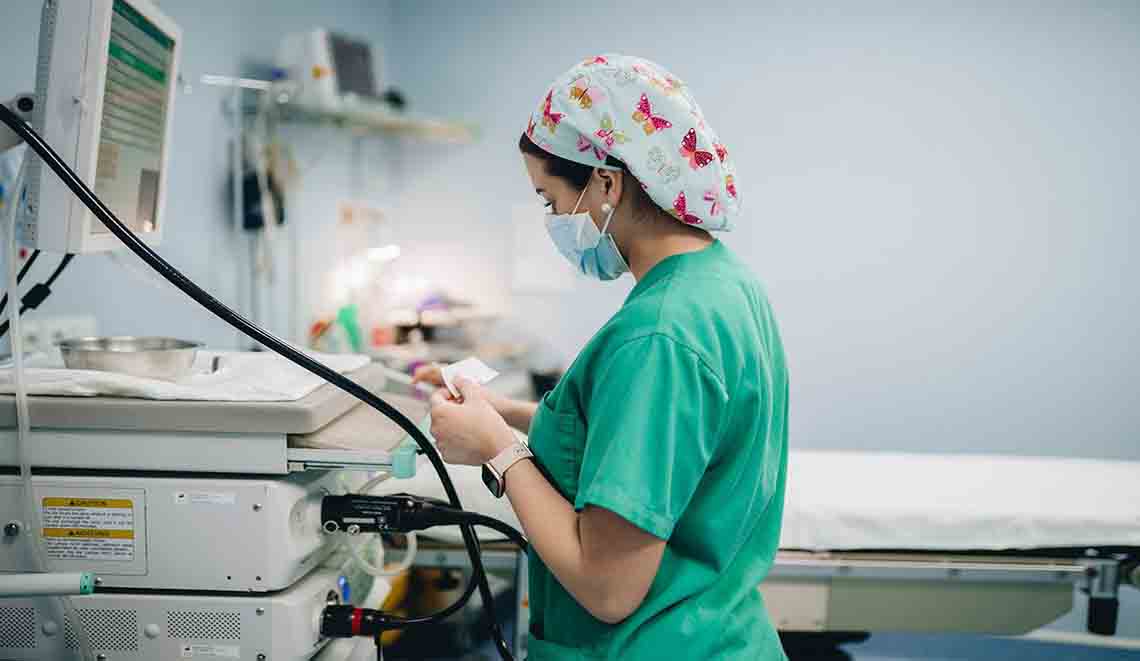Comprehensive Strategies for Managing Crohn's Disease

Crohn's disease is an inflammatory bowel disease (IBD). It causes chronic inflammation and irritation in the digestive tract. Although primarily affecting the small intestine and the beginning of the large intestine, it can involve any part of the digestive tract from the mouth to the anus. Other common types of IBD include ulcerative colitis and microscopic colitis. Moreover, the disease usually develops gradually and may worsen over time if left untreated.
Treatment Options for Crohn's Disease: What You Need to Know
Affected by Crohn’s disease and other types of inflammatory bowel disease, medicines, dietary changes, nutritional therapy, and occasionally surgical interventions can help remove or repair damaged segments of your digestive tract. These treatments can help in managing your illness and promote in leading a fulfilling life. However, it's important to remember that there is no one standard treatment effective for all patients. Each patient suffers from different conditions, and so require a specific course of treatment plan.
Medications
The medications used for Crohn's disease suppress the overactive immune system responsible for causing inflammation. It not only brings relief from pain, fever, and diarrhea, but also allows your gut to heal. Beyond symptom relief (remission), meds can also help prevent flare-ups (remission maintenance). Over time, with the right medication, you can experience longer stretches of feeling good and fewer flare-ups.
Combining Treatments
Sometimes, your doctor could recommend teaming up different medications to treat Crohn's disease more effectively. This is called combination therapy. For example, it may involve adding a biologic drug to an immunomodulator. However, like any other treatment, combination therapy has two sides to the coin. On the good side, it can be more powerful in managing your condition, while on the other it may increase your risk of side effects. Ultimately, your doctor will decide on the best course of treatment based on your specific needs.
Consuming Nutritional Diet
Crohn's disease may not be caused by specific food reactions, but eating a balanced diet can help reduce symptoms, restore nutrients, and promote healing. The condition often lowers appetite and raises energy requirements, and common symptoms like diarrhea can reduce nutrient absorption of protein, fat, carbs, water, vitamins, and minerals. Easily digestible, low-residue foods may cause less pain than spicy or fiber-rich foods. A flexible diet should contain a range of foods from all food categories, however lactose intolerant people may need to limit dairy consumption.
Bowel Rest
Severe Crohn's disease symptoms may demand days or weeks of bowel rest. It involves drinking specified liquids or refraining from eating or drinking anything. Doctors may recommend nutrient-dense liquid, feeding tubes, or intravenous nutrition. Patients may be admitted to the hospital or treated at home because in most cases, intestines repair during bowel rest.
Surgery
A certain proportion of individuals with Crohn's disease needs surgery at some time in their life. Surgery can restore your highest quality of life and save a piece of your digestive tract, even if it cannot cure Crohn's disease.
Surgery becomes essential when medication is no longer able to treat your symptoms, or if you develop an intestinal blockage, fistula, or fissure. In most cases, anastomosis, or the joining of the two ends of the healthy intestine, follows the removal of the diseased segment of the colon (resection). Even while these treatments could make your symptoms go away for a long time, Crohn's disease usually returns in later life.
Choose Wisely
You are not alone if you're confused regarding the drugs and treatments available for Crohn’s disease. Due to the complexity of IBD, it's important to discuss the advantages and disadvantages of every treatment choice with your physician before making a well-informed decision about the best course of action for your specific situation. IBD takes time to heal, but it can be treated.

